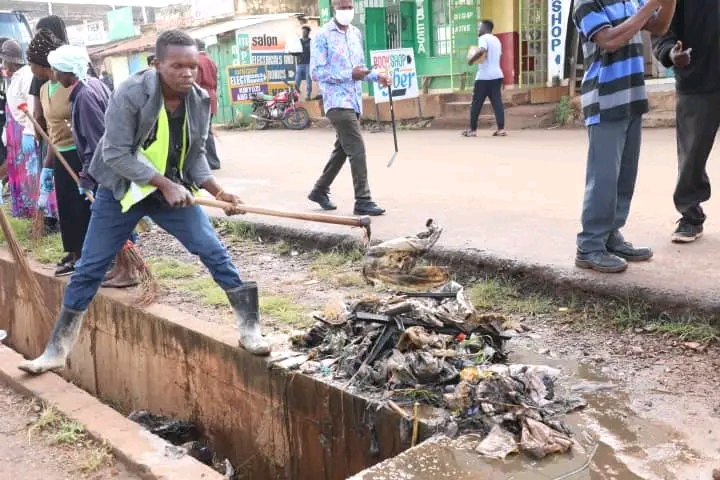
Residents of major towns in Vihiga county are grappling with worsening waste management problems that threaten both their health and the environment.
Drainage systems in Mbale, Luanda, Chavakali and Mudete towns have been overwhelmed by rapid urbanisation, leading to heaps of uncollected rubbish and blocked drainage channels.
The poor disposal of solid waste has caused frequent overflows onto the streets, exposing residents to pollution and waterborne diseases.
In Mbale town, traders say the growing piles of rubbish are driving away customers and hurting business.
“We have suffered for long, yet we have a functional county government that has remained silent on this issue of solid and liquid waste disposal,” James Kamadi, a trader in Mbale, said.
Dorcas Alenga, a trader at Luanda, said, “The market is in a pathetic condition. The waste is too much, and we demand better services.”
Hotels and businesses in both towns are reportedly forced to discharge wastewater into public drainage systems at night, worsening the situation.
Governor Wilber Ottichilo acknowledged the waste management crisis but assured residents that the county is taking steps to address it.
Ottichilo said the government has signed a Memorandum of Understanding with M-Taka Waste Solutions Limited to establish a framework for sustainable waste management, including data sharing, capacity building and promotion of recycling.
“Most people do not understand that waste is a valuable resource that can be converted into wealth,” Ottichilo said.
The partnership will revolutionise waste management in Vihiga by creating awareness and accelerate the county’s transition towards a circular economy.
The governor said the initiative will also create access to markets for recyclable materials through stronger value-chain linkages.
As part of the deal, the county will work with M-Taka to establish a Material Recovery Facility (MRF) to enhance waste segregation, recycling and material recovery.
The facility is expected to generate new economic opportunities, particularly for young people, while reducing the health and environmental hazards caused by poor waste disposal.
Instant analysis
Vihiga county’s waste crisis highlights the growing pains of rapid urbanisation outpacing local infrastructure. The uncollected garbage and blocked drains mirror weak enforcement of urban health regulations and limited investment in waste systems. However, the county’s partnership with M-Taka Waste Solutions marks a shift toward a circular economy that treats waste as a resource. If implemented effectively, the plan could generate youth jobs, improve sanitation and turn environmental risks into economic value. The real test will be in execution—ensuring the promised Material Recovery Facility and community participation don’t stall at the MoU stage.












